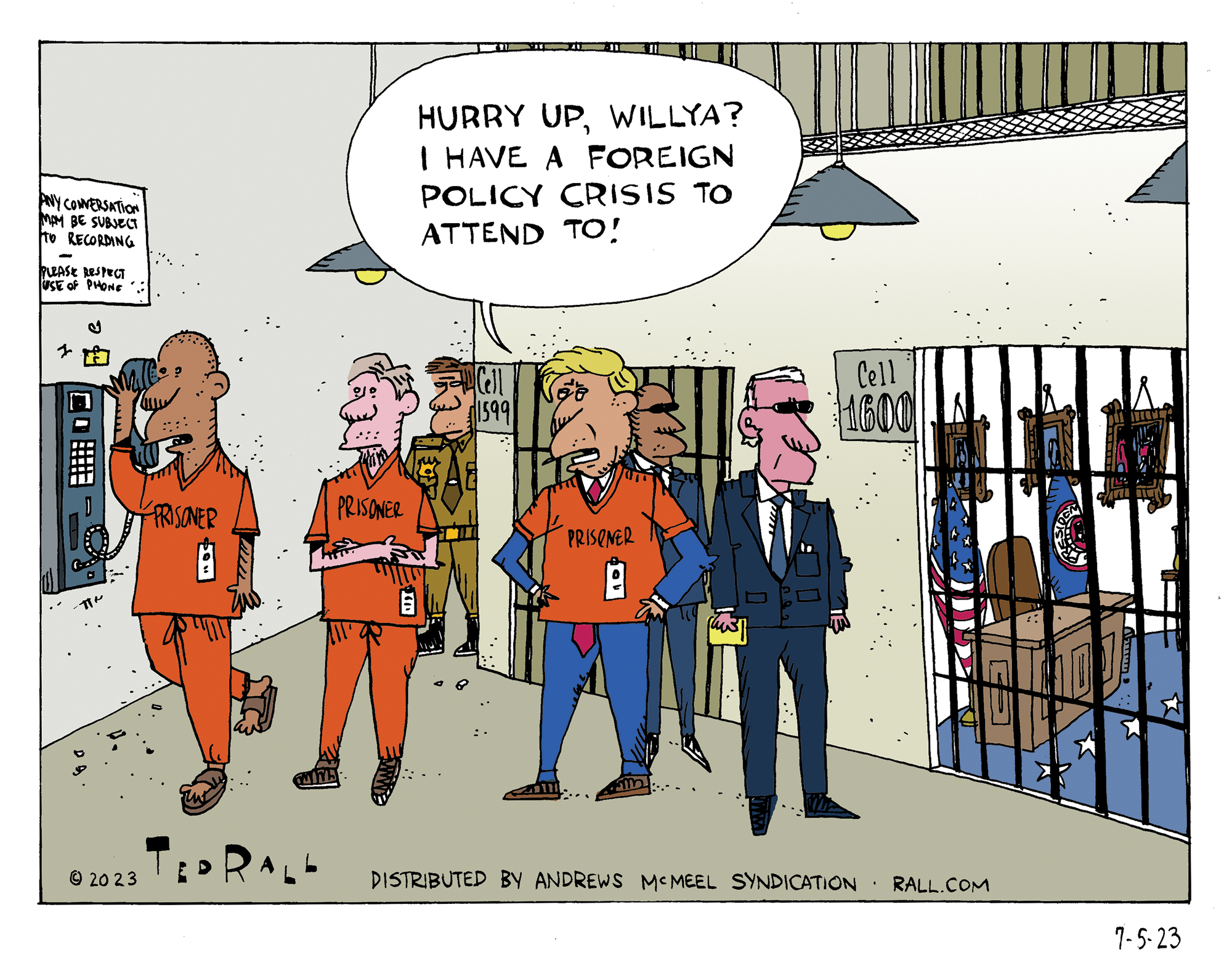The idea that third parties are spoilers is a baseless conspiracy theory on par with the Loch Ness monster, the man on the grassy knoll, and Pizzagate. But what if you’re worried, like many Democrats, that voting for a third party like the Greens’ Cornel West or, if they ever get their act together, someone from the No Labels Party, might improve Donald Trump’s chances of returning to the White House next year?
Given just how bizarre, manic and exhausting Trump’s four years were, I don’t blame you for being paranoid. It was a rough time for Democrats, more so than under previous Republican administrations. You’re traumatized. You’ll do just about anything to stop that from happening again!
(Those of us on the Actual Left, not Democrats, found Trump’s time in the White House more amusing than dispiriting. Sure, he mostly did stuff that we didn’t like. But so did Biden. Anyway, it’s not about us…not this week.)
Don’t worry.
We’ve got this.
You may very well be able to vote your actual conscience, assuming that you have one, and vote third party without increasing the odds of a Trump restoration by one iota. Take my hand and let’s find the answer to your burning question: can you safely vote third party?
First Filter: Do you live in a swing state?
In 48 states, the victor in the popular vote wins all that states’s electoral votes. Coupled with the fact that many states are lopsidedly either majority Republican or majority Democrat—by a lot—the electoral college’s winner-takes-all scheme ensures that votes for a small minority third party can only (theoretically) change the outcome in a “swing state” where the vote could go either way.
For example, the Democratic presidential nominee, whether it’s Joe Biden or RFK Jr. or a rutabaga, will win New York, where I live. New Yorkers like me, therefore, can happily vote for Dr. West or my cat or No Labels secure in the knowledge that they will not be doing anything to help Trump.
There will be four swing states in 2024: Georgia, Wisconsin, Arizona and Nevada. If you are one of the 92% of American voters who do not live one of these four swing states, your vote is 100% guaranteed to have no impact whatsoever on the election. Vote, don’t vote, vote red, vote blue, vote green, makes no difference—your state will fall into either the red or blue column. We already know which. Nothing can change the result.
Maine and Nebraska assign their electors proportionally. In one of these two low-population proportional-voting states, you could theoretically affect the assignment of a single electoral vote. However, the closest legitimate electoral-college margin was 23 votes, in 1916. (Bush beat Gore by 5 but that followed the Supreme Court’s awarding of Florida to Bush. The 1876 Tilden vs. Hayes race is officially listed as having been won by 1 elector, but was decided by Congress in an insanely racist corrupt deal and is universally considered to have been illegitimate.)
If you’re in the 8% of the population who live in Georgia, Wisconsin, Arizona and Nevada, please continue below.
If not, stop here. CONGRATULATIONS! You can vote third party!
Second Filter: OK, you’re a resident of Georgia, Wisconsin, Arizona or Nevada. What is the likely margin between the Republican and Democratic votes for president?
Note this number.
Third Filter: As a resident of Georgia, Wisconsin, Arizona or Nevada, how many votes do you personally control?
If you are a political power broker like Democratic Party boss James Clyburn of South Carolina (but not actually him since South Carolina is not a swing state), this number may be high—in the thousands, or even hundreds of thousands. Otherwise, because you can only control your one single vote when you go into the voting booth, this number is one. Note your number.
Fourth Filter: Subtract the answer in the Third Filter Question from the answer in the Second Filter Question.
If the answer is greater than zero, CONGRATULATIONS! You can vote third party!
If the answer is zero or less, STOP. You may not vote for a third party. As a Richard Daley-style political boss, or election machine hacker, or whatever scary person you are that allows you to control zillions of other people’s votes, it would be reckless and irresponsible for you to cast your many votes for a third party instead of Joe Biden, since your swing state might fall into the Trump column as a result.
(Ted Rall (Twitter: @tedrall), the political cartoonist, columnist and graphic novelist, co-hosts the left-vs-right DMZ America podcast with fellow cartoonist Scott Stantis. You can support Ted’s hard-hitting political cartoons and columns and see his work first by sponsoring his work on Patreon.)



